#American Prometheus
Explore tagged Tumblr posts
Text
Something not enough people have been discussing about Oppenheimer is just how accurately they portray what the wonder and awe of physics feels like. I remember watching the thought sequences and near obsession Oppenheimer had with stars and quantum mechanics, and between the visuals and the music, it just resonated *so hard with me.*
The phrase, "can you hear the music?" so perfectly describes what made me fall in love with physics in the first place. It's something so *beyond* the scope of human existence; a hidden score that the universe harmonizes to. I so often feel like movies either downplay science or glorify it to seem less taxing and tricky than it is, but I feel like Oppenheimer found the sweet spot. To quote someone I saw review the trailer, they "made scientists (and for that matter physicists) cool again." Anyways, just thought that was neat and figured I'd share my nerdy little thoughts since there's so much barbenheimer everywhere and I can't seem to find just Oppenheimer appreciation. Do love barbenheimer though.
#j robert oppenheimer#oppenheimer#oppenheimer movie#christopher nolan#cillian murphy#barbenheimer#american prometheus#please i am screaming about this
1K notes
·
View notes
Text
Today I discovered a mid-century photographer called Philippe Halsman who photographed the famous people of his era, from Richard Nixon to Marilyn Monroe. At the end of his sessions he would ask the person to jump into the air for a picture, believing that this would cause them to drop their pretenses and public persona, leaving him with a picture of the real person as they made their leap. He called this ‘jumpology’.
This is the photo he took of Robert Oppenheimer in 1958, possibly the most free and unreserved image of him that I’ve ever seen.
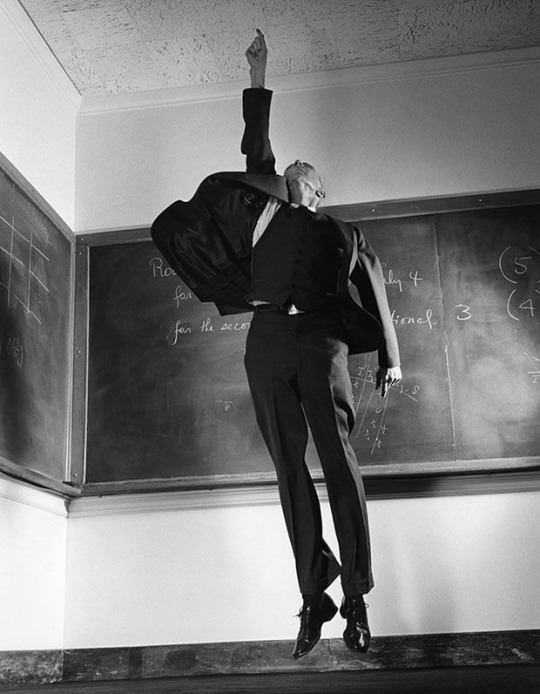
#oppenheimer#american prometheus#1950s#cillian murphy x reader#cillian murphy#oppenheimer x reader#christopher nolan#peaky blinders#tommy shelby#tommy shelby x reader#j robert oppenheimer#history#world war two#manhattan project#philippe halsman#photography
616 notes
·
View notes
Text
'"Oppenheimer" is the summer blockbuster of the year. The visually and sonically compelling film does a lot of things right from examining the existential dread associated with our feeble humanity and analyzing the moral qualms with human ingenuity and its devastating outcomes that showcase we are the culprits of our own destruction.
But it also does some things wrong too. It has a woman problem.
Christopher Nolan's three-hour-long biopic tells the story of the brilliant quantum physicist, J. Robert Oppenheimer (Cillian Murphy) based on the biography "American Prometheus." The Oppenheimer we uncover in Nolan's film stresses that he is a charmer – he's a womanizer. Nolan wants the audience to know that not only is Oppenheimer one of the most important historical figures in the 20th century, but he also can pull a Communist female Stanford grad student.
One of the most polarizing aspects of the film is Oppenheimer's on again, off again relationship with said grad student, Jean Tatlock (Florence Pugh). Some would say the way Nolan portrays the relationship and Jean, and her inevitable death by suicide is indicative of a larger issue with the depiction of women in his films.
In their first encounter, they quickly find themselves in bed together. In a controversial scene, Jean and Oppenheimer are having sex while he reads Bhagavad Gita, a sacred text in Hinduism. He reads the line, "Now I am become death, the destroyer of worlds," during the act itself. Hindu right-wing nationalists called the scene an "attack on Hinduism."
But that isn't the only sex scene between the two in the film. Further into the behemoth of a film, in McCarthy-era America, a room full of government officials question Oppenheimer's former communist ties. He reveals to the board his previous relationship with Jean and how it evolved into an affair. He's now married to Kitty Oppenheimer (Emily Blunt), who is there in the room as he admits to his extramarital affair.
Nolan portrays this confession in the most blatant way possible. Without warning or explanation, a naked Jean is seen straddling and having sex with Oppenheimer as he sits in the chair being interrogated. Is it his imagination? Is it Nolan's one-the-nose way of showing the impact of the confession? Regardless, the audience sees this as the couple going at it while Oppenheimer is staring at the board of men questioning him. It's creepy. The imaginary Jean even glances directly at his wife – his wife who just found out Oppenheimer had been cheating on her for years. Is this storytelling device attention-grabbing? Absolutely, but not in a good way.
It's vital to point out the flaws in a filmmaker's perspective when it's used to only service a man's story and nothing else. As an audience member, the context of the scene and what it does for the larger narrative matters; it is a part of the moviegoer's entire film experience. And as I was watching the second sex scene with Oppenheimer and Jean, I gasped at how disjointed it felt from the larger story Nolan was attempting to illustrate. Sex scenes aren't inherently controversial, nor do they have to be, especially if they are filmed with appropriate boundaries and respect toward the actors and characters. But in "Oppenheimer" something about the audience watching the sex scene in the same way the characters in the interrogation room watched it – feels icky and voyeuristic. And also puzzling.
"Oppenheimer" is an engrossing film. Its riveting acting and nonlinear storytelling infused with cinematic shots of the galaxy and stars hold the audience in a trance. Well, that is until you watch that ill-advised foray into filmmaking voyeurism. It completely snatches you out of the film and puts you back into your body.
Moreso, the scene wouldn't be so jarring if there wasn't such little Jean in the film. Pugh's talents are wasted as she attempts to embody an emotionally embattled intellectual. Jean is a seemingly dark, unconventional type of woman from the 1940s. She is studying to be a psychiatrist but also struggles with depression, and it was speculated that she was queer. But we don't really receive any of this information from the film. We can tell that she's stubborn, volatile and complicated but we are more or less told that through Oppenheimer's perspective of her as his love interest.
This also counts for his wife, Kitty – another female character with unbridled, untapped potential. But of course, she only exists in the roles of love interest, mother and Oppenheimer's conscience. The film only slightly touches on Kitty's tragic past, potential mental health issues and rejection of motherhood. Thankfully, Blunt's acting makes the role feel fuller than it is written to be.
If we address Nolan's track record with female characters, he is known for two tropes: Dead Wife and Woman in A Refrigerator. Across the filmmaker's extensive work, he has a proclivity for fridging, that is killing off a female love interest – in films like "Memento," "The Prestige," "Inception" and "The Dark Knight" – as an alluring and tragic backstory for his male protagonists just like he did with Jean. Of course, she is based on a real person, but Nolan's treatment of her and her tragic death is the same as if she were fictional. The audience is left with very little understanding of Jean, not even with her tragic death. Instead, her most indelible scenes are as Oppenheimer's sex object or in death, a way to humanize the physicist. (And when Nolan doesn't get around to killing off his female characters, he sidelines them like Kitty or Elizabeth Delicki's character in "Tenet.")
Sure, you can argue the film being named "Oppenheimer" means it's entirely about him, and all the supporting characters should only act to elevate his story. The script was even written in first person to convey that every character is just a piece in Oppenheimer's narrative.
However, just because the story is titled "Oppenheimer" doesn't mean one has to adhere to such tunnel vision in storytelling. Case in point is another film named for a singular person – that came out on the same day as " Oppenheimer" in fact – and proves that argument flimsy at best.
"Barbie" does what "Oppenheimer" fails to do.
"Barbie" follows the journey of the human-sized doll (embodied by Margot Robbie) through her existential awakening, crisis and eventual empowerment. But it also spends a significant chunk of its runtime to give her counterpart Ken (Ryan Gosling) space to explore his "neediness, loneliness and identity crisis." Gary Kramer writes for Salon that Ken "hijack[s] the plot for long stretches and force[s] Barbie to help him, not the reverse."
Ken is Barbie's accessory boyfriend but he isn't treated as just her accessory boyfriend. In the writing, Greta Gerwig and Noah Baumbach allow Ken ample room for self-discovery. Ken is allowed to explore the human world without the need to be attached to Barbie's hip. He searches for his purpose and identity. He's even given a whole musical dance number to dive into his interiority. "Barbie" does what "Oppenheimer" fails to do. It gives purpose and depth to a supporting character's arc – depth that is entirely crucial to the emotional center, vulnerability and gravitas of a character like Barbie.
Ultimately, Nolan barely scratches the surface with his female ensemble and doesn't do their larger-than-life experiences justice. It just feels like a tired attempt to show us Nolan knows women exist but the catch is they do not exist outside of their relationships to men. (Sorry, Bechdel.) Their pain and suffering are a way to transform a man into the protagonist of his story, not hers.'
#Oppenheimer#Christopher Nolan#Cillian Murphy#Florence Pugh#Jean Tatlock#Kitty#Emily Blunt#Barbie#Greta Gerwig#Noah Baumbach#American Prometheus#Bhagavad Gita#Memento#The Prestige#Inception#The Dark Knight#Tenet#Margot Robbie#Ryan Gosling
185 notes
·
View notes
Text
i wonder if the movie will have the scene where Oppenheimer tried to poison his Cambridge professor with a literal poison apple. or that time where one of his friends got engaged and instead of congratulating said friend Oppenheimer attacks him and chokes him.
166 notes
·
View notes
Text
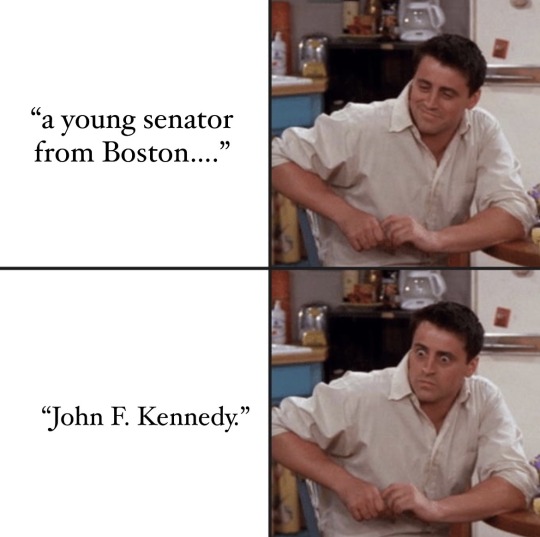
the way our theater “oooh’d” at this scene like they were gonna confirm an american history cinematic universe or something 😭
#should probably tell you just how much the american education system failed us tbh 🗿#oppenheimer#oppenheimer movie#lewis strauss#robert downey jr#christopher nolan#american prometheus#john f kennedy
142 notes
·
View notes
Text
Oppenheimer changed me as a person.
(also, notable side effect: 24/7 intj stare)
#oppenheimer movie#christopher nolan#oppenheimer#j robert oppenheimer#cillian murphy#american prometheus#mbti intj#intj#mbti
86 notes
·
View notes
Text

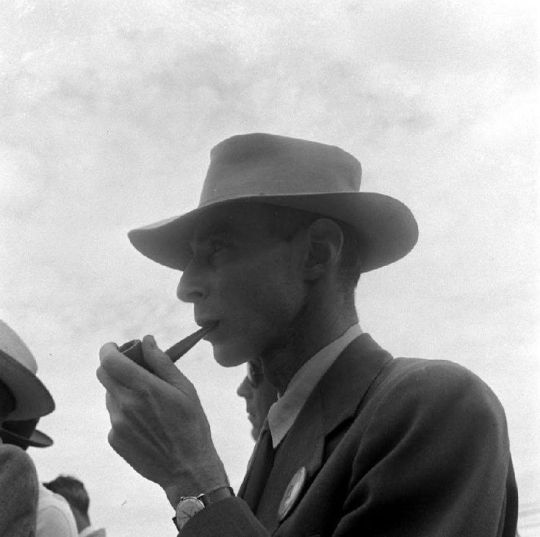
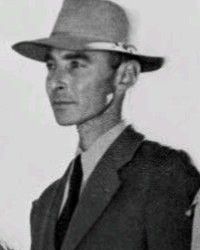
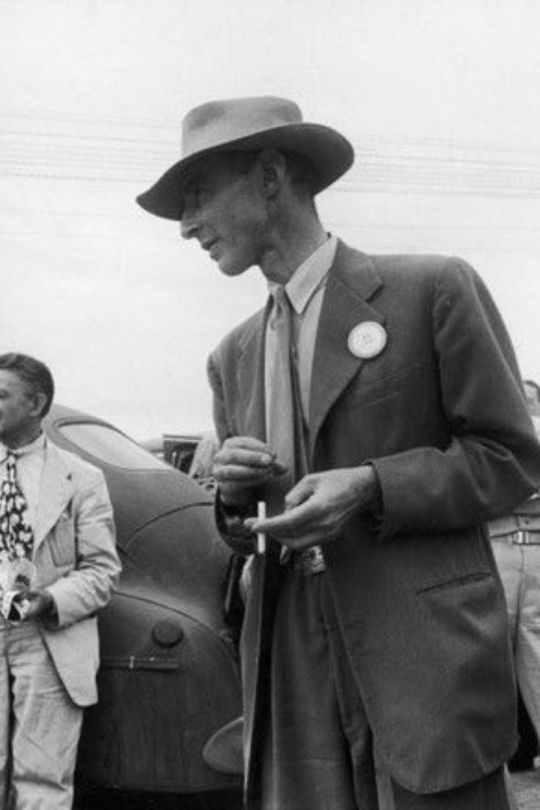
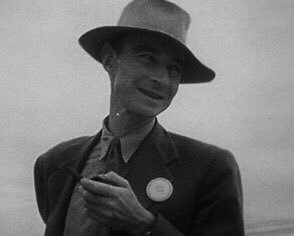
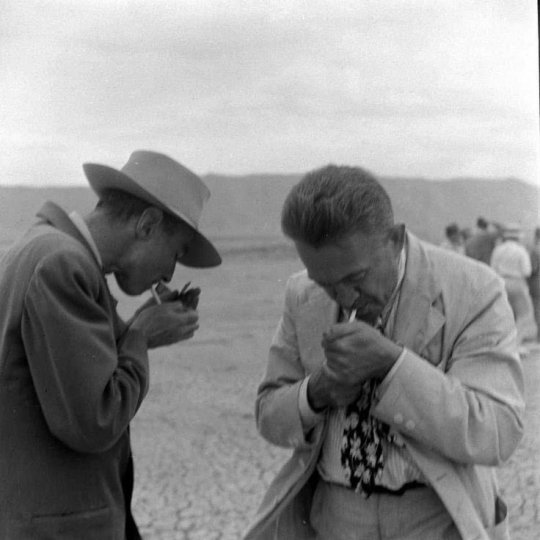
Happy birthday to Robert Oppenheimer who would be 120 today!
22/04/1904
#j robert oppenheimer#oppenheimer#oppie#robert oppenheimer#american prometheus#los alamos#manhattan project#history
31 notes
·
View notes
Text
american prometheus is just pages of “oppenheimer was clumsy, honest and blunt to the point of appearing rude, bad with social cues, couldn’t take a hint, overstimulated easily, loved rocks as a kid, had verbal stims, wore the same clothes all the time, and everyone could just tell there was something different about him… idk why tho. couldn’t possibly venture a guess.”
69 notes
·
View notes
Text

The goal of this Zine is to compile content and encourage creators to share their works. I made this Oppenheimer Zine so that artists and writers could have fun making stuff for our small fandom. For this reason, I am not very strict about the quality of the works that are included in the Zine, but I do request that an honest effort is put into creating them.
The Discord link is included for anyone who has questions about the Zine or would like to talk with other people in the Oppenheimer fandom.
**The due date for Zine content will be August 10th** A google form will be sent at least two weeks before that time for content creators to submit their works for the zine.
If you have any questions, my ask box is open!
What are the requirements for writers?
The requirements for writers would include the fic being at least over 200 words with no word limit. Content wise, it would need to be placed in the Oppenheimer movie or history.
What content/ships am I allowed to create?
The focus is on Oppenheimer and any ships are allowed.
What format will the Zine be in?
The format is going to be digital. A PDF of all the accepted works will be shared once the Zine is over.
How do I submit my work to the Zine?
There will be a google form closer to the due date where creators can submit their works. The form to submit works will be open for three weeks before the due date.
What are the requirements for artists?
The requirements for artists is that the completed work needs to look professional. (This does not mean it needs to look like it's ready to be hung in a museum, but please do not submit sketches). All art is accepted for example: cosplay, paintings, embroidery, digital drawings, mood boards, and playlists.
What is the due date for submitting works for this Zine?
The due date for Zine content will be August 10th. Creators can start submitting their works two weeks before that due date.
#oppenheimer 2023#oppenheimer#j robert oppenheimer#robert oppenheimer#cillian murphy#american prometheus#zine#fandom zine
14 notes
·
View notes
Text
SPOILERS FOR OPPENHEIMER BY THE WAY BECAUSE I HAVE WAY TOO MANY THOUGHTS ABOUT THIS MOVIE AND WANT TO DISSECT IT
Okay so I know there are some very reasonable and valuable complaints, comments, and criticisms about Oppenheimer and how it handles the ACTUAL victims of the war, martyrizing Oppenheimer, an arguably very gray character in reality for more reasons than the atomic bomb and...trying to poison his mentor. You know. The basics.
THAT SAID I AM GOING ABSOLUTELY FERAL FOR CILLIAN MURPHY'S PORTRAYAL OF OPPENHEIMER LIKE I HAVE A 3 IN 1 DEAL FOR HYPERFIXATIONS RIGHT NOW I THINK BECAUSE WE HAVE THE ACTUAL MOVIE, CILLIAN, AND THEN OPPENHEIMER. AGH. LOSING MY MIND. PICKING APART EVERY SCENE AND DETAIL WHILE ALSO GUSHING ABOUT CILLIAN'S PERFORMANCE.
on that note here's some things I worked out about the movie, or rather, my takes on them for those curious (some of these are definitely a stretch, but I like seeing how far I can push a metaphor once I find one, so here we go):
Lotta controversy about the "I am become death" quote during the sex scene, which, fair. I can see why they included it though, upon reflection. In the moment, it just feels like a strange foreshadowing of the bomb itself, which did Not resonate with me and seemed fairly jarring, but upon closer inspection, I think the relevance of that quote in *that* context is that this is the first person Oppenheimer lost. Jean needed Oppenheimer, and he blamed himself for her suicide (or murder, maybe). This was the first time he "became death, destroyer of worlds"; the first marble in the bowl, which mirrors Oppie's reaction to the bomb's actual detonation quite well, too, I think. Something terrible has just happened, and yet the expectation is that Oppenheimer shows up and pretends all is well and he isn't horribly damaged, just martyring on.
SECOND
The orange from Rabi might be a bit deep or I might be a bit stupid. Oranges tend to symbolize positivity and aid, so being told to eat one by a friend in his most vulnerable moment is a kindness, hence some symbolism there. I did unpack this deeper though, say, such that oranges need to be peeled to get to the sweetness, and they are one of the sweetest citrus fruits, though they maintain their tang. This represents perfectly how the orange delivery felt in that scene; sweetness from Rabi in a moment of vulnerability, the orange peel gone, the bitter and trauma numbed exterior of Oppenheimer stripped away for just a moment before the sour slammed back in full force. Also just. Really stretching it but oranges being segmented could both represent a fractured mind AND the different perspectives on Oppenheimer as a whole and his reputation to this day.
Oh and General Groves when telling Oppenheimer he's essentially done with him but will ..try? To keep in contact? And update him?? He's buttoning up his coat if I remember right, mirroring his guard getting put up as he ends his amicable dealings and negotiations with Oppenheimer, adding layers and making himself less vulnerable. Oppie, meanwhile, smokes as the quiet, socially acceptable way to perform an anxious ritual.
Also the RAIN. Don't have this one fully unpacked yet and maybe never will but Cillian in an interview mentioned that Nolan described Oppenheimer as "dancing between the raindrops" and this has only half clicked with me but oh well here we go. The basic idea is likely that Oppenheimer doesn't abide by just one grouping of people or their ideas, or hop on any flow bound for one particular destination. Rather, he dances in the space between; in the uncertainty that looms closer towards the ground the further things fall. I think this works decently with what I've listened to and read about Oppenheimer as a person, saying he'd follow recent physics, always growing impatient with the current field he was in and seeking something more...I don't like the use of this word in relation to science but "trendy." I guess the dust particles and whatnot in the headspace sequences work in line with the whole rain theory too in terms of how Oppenheimer doesn't just think about the interactions and the space between, but lives and breathes it as the space between the raindrops; between those that make the biggest splashes, as he gets caught in the ripples. Also given his anti-war rhetoric throughout the movie I feel like there's maybe a fire/water thing going on with him trying to quench the bomb he created but ultimately failing? Who knows. Maybe it's just rain.
Anyways here's all the ramblings I did to myself to reach these conclusions. They are incomprehensible.

#oppenheimer#cillian murphy#christopher nolan#oppenheimer spoilers#barbenheimer#god dammit cillian has me in a chokehold#american prometheus#j robert oppenheimer#my ap lit brain was Not Okay after that movie
146 notes
·
View notes
Text

Who ever thought that giving the world Cillian Murphy in uniform was fair? How am I meant to settle for an ordinary man after this?!
#oppenheimer#american prometheus#cillian murphy#1950s#oppenheimer x reader#cillian murphy x reader#christopher nolan#j robert oppenheimer#tommy shelby#peaky blinders#a man in uniform
249 notes
·
View notes
Text
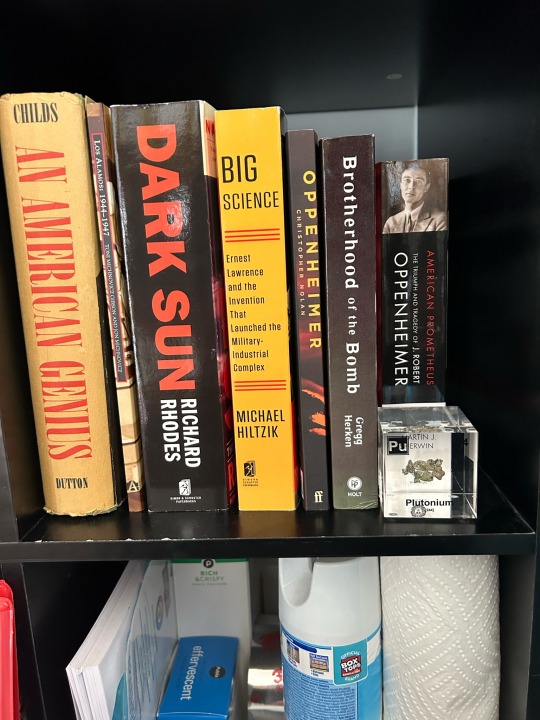
This obsession is getting outta control
Cool fact tho; the Plutonium (Trinitite) is actually fused sand and residual plutonium from the site of the Trinity Test!
43 notes
·
View notes
Note
Just saw Oppenheimer and I was a bit disappointed with how they portrayed Truman. He came across pretty poorly IMO. It was only one scene but I wondered what you thought.
I understand your disappointment and it certainly wasn't a very in-depth portrayal of Truman, but according to the book that the movie was largely based on -- American Prometheus: The Triumph and Tragedy of J. Robert Oppenheimer by Kai Bird and Martin J. Sherwin (BOOK | KINDLE | AUDIO) -- the meeting that Oppenheimer had with President Truman went down pretty much as depicted in the film.
As Bird and Sherwin write in American Prometheus:
(O)n October 25, 1945, Oppenheimer was ushered into the Oval Office. President Truman was naturally curious to meet the celebrated physicist, whom he knew by reputation to be an eloquent and charismatic figure. After being introduced by Secretary [of War Robert P.] Patterson, the only other individual in the room, the three men sat down. By one account, Truman opened the conversation by asking for Oppenheimer's help in getting Congress to pass the May-Johnson bill, giving the Army permanent control over atomic energy. "The first thing is to define the national problem," Truman said, "then the international." Oppenheimer let an uncomfortably long silence pass and then said, haltingly, "Perhaps it would be best first to define the international problem." He meant, of course, that the first imperative was to stop the spread of these weapons by placing international controls over all atomic technology. At one point in their conversation, Truman suddenly asked him to guess when the Russians would develop their own atomic bomb. When Oppie replied that he did not know, Truman confidently said he knew the answer: "Never." For Oppenheimer, such foolishness was proof of Truman's limitations. The "incomprehension it showed just knocked the heart out of him," recalled Willie Higinbotham. As for Truman, a man who compensated for his insecurities with calculated displays of decisiveness, Oppenheimer seemed maddeningly tentative, obscure -- and cheerless. Finally, sensing that the President was not comprehending the deadly urgency of his message, Oppenheimer nervously wrung his hands and uttered another of those regrettable remarks that he characteristically made under pressure. "Mr. President," he said quietly, "I feel I have blood on my hands." The comment angered Truman. He later informed David Lilienthal, "I told him the blood was on my hands -- to let me worry about that." But over the years, Truman embellished the story. By one account, he replied, "Never mind, it'll all come out in the wash." In yet another version, he pulled his handkerchief from his breast pocket and offered it to Oppenheimer, saying, "Well, here, would you like to wipe your hands?" An awkward silence followed this exchange, and then Truman stood up to signal that the meeting was over. The two men shook hands, and Truman reportedly said, "Don't worry, we're going to work something out, and you're going to help us." Afterwards, the President was heard to mutter, "Blood on his hands, dammit, he hasn't half as much blood on his hands as I have. You just don't go around bellyaching about it." He later told [Secretary of State] Dean Acheson, "I don't want to see that son-of-a-bitch in this office ever again." Even in May 1946, the encounter still vivid in his mind, he wrote Acheson and described Oppenheimer as a "cry-baby scientist" who had come to "my office some five or six months ago and spent most of his time wringing his hands and telling me they had blood on them because of the discovery of atomic energy."
#Oppenheimer#History#Oppenheimer Film#J. Robert Oppenheimer#Harry S. Truman#President Truman#Truman Administration#Atomic Bomb#Manhattan Project#Trinity Test#Oppenheimer Movie#Christopher Nolan#Cillian Murphy#Gary Oldman#American Prometheus#American Prometheus: The Triumph and Tragedy of J. Robert Oppenheimer#Kai Bird#Martin J. Sherwin#Nuclear Weapons#World War II
80 notes
·
View notes
Text
'If you’ve ever read an interview with the Irish actor Cillian Murphy, you might think him shy, irritable, or even neurotic. Journalists love to write about how closed-off he is, that if you ask him anything too personal he’ll shut down and give one-line answers. This makes their job very hard, they say. But what those interviews don’t tell you, is that if you let Murphy talk about a subject that he actually wants to talk about – such as his epic new film about the father of the atomic bomb J. Robert Oppenheimer – he’ll go on for ages. And he’ll be very open and interesting while he’s doing it. He might even make a joke.
He does this when NME meets him at a posh hotel in Soho. We’ve just walked into the room. Murphy is sat down, wearing a black v-neck jumper over a white t-shirt, black trousers and a pair of very pointy Chelsea boots. He seems relaxed, and greets us with a cheery “hello!”. Then he recognises the thick paperback tucked under our arm as a copy of American Prometheus, the Pulitzer Prize-winning biography from which Oppenheimer is adapted. We’d intended to read a quote from the book later but Murphy cuts in on our explanation. “No, you brought it in here to be pretentious,” he grins. “Would you like me to sign it for you?”
There are people who would sell their grandmas for a mere glimpse of Murphy, let alone an autograph. He’s been dogged by screaming fans since the early days of his career – when he broke out as often-shirtless apocalypse survivor Jim in Danny Boyle’s 2002 horror hit 28 Days Later. Brummie gangster series Peaky Blinders made him a global star, but his most famous film roles are notable because they’ve often come from collaborations with the same director. Christopher Nolan’s sci-fi blockbuster Inception, war thriller Dunkirk and his Batman trilogy all featured Murphy as the supporting curio – a side character that pops up every so often to steal your attention from the main protagonist. But in Oppenheimer, the duo’s latest creative partnership, he finally is the main character.
And he’s a good one too. Oppenheimer was an American scientist who made vital discoveries in quantum physics during the 1920s and ‘30s, going on to oversee the creation of the atomic bomb for the US Government – two of which were dropped on Japanese cities Hiroshima and Nagasaki in 1945, killing an estimated 220,000 people. Oppenheimer spent the rest of his life campaigning for disarmament, appalled at the weapon (his preferred term was “gadget”) he had helped to give the world. He also drank heavily and had a reputation as a womaniser, despite being quiet and sometimes socially awkward. Murphy calls him “contradictory” and “complex”, which is like saying Suella Braverman doesn’t like immigrants. “I do think that he believed it would be the weapon to end all wars,” Murphy continues, attempting to explain how a left-leaning humanitarian could spend two years perfecting the ultimate killing machine. “He thought that [having the bomb] would motivate countries to form a sort of nuclear world governance.” Murphy pauses. “He was naive.”
Was that naivety a choice though? Oppenheimer had an explosive ego, once attempting to poison a university professor who chastised him when he was a student. Could his desire to achieve such as historic breakthrough have led him to ignore his own better judgement?
“That’s an interesting take,” says Murphy. He runs his hands through his hair, which is styled into wavy curtains. He does this a lot when thinking a question over. “Chris used this amazing phrase. We were talking about Oppenheimer’s arc and he said, ‘You know, he’s dancing between the raindrops morally.’ That unlocked something in my mind when I was preparing.”
To play the role of Oppenheimer, Murphy went very deep. He read the Bhagavad Gita – a 700-page Hindu religious text that the physicist famously quoted from (“Now I am become Death, the destroyer of worlds.”) Then he started “skipping meals” in an effort to slim down to Oppenheimer’s rail-thin frame. During the actual shoot, Murphy smoked so many fake cigarettes that he worried it harmed his health. “They can’t be good for you,” he told The Guardian. Oppenheimer himself died of throat cancer in 1967.
On top of the physical strain, Murphy delved into some pretty dark emotional places. He had six months to research before filming began in February 2022, and during the 67-day production he often worked 18-hour days. War, genocide and the nuclear holocaust are unpleasant to think about at the best of times, never mind your every waking moment. It must have been brutal.
“You always have to take a holiday after a job,” he concedes, as though being a Hollywood actor is no different from plumbing toilets. “It’s not because… as some journalists like to think, you’re a method actor or whatever. It’s because you give so much time to the job and then suddenly you stop. You have all this displaced energy, you know, so you kind of don’t know what to do with yourself… But I’m a very easygoing sort of person. It doesn’t weigh me down.”
We suspect Murphy isn’t being entirely truthful here. Such is the intensity of his performance – all simmering discontent and wide-eyed panic attacks – that it’s difficult to believe he just shook the weight of global armageddon off each night before climbing into bed. Emily Blunt, who plays Oppenheimer’s wife Kitty in the film, has said Murphy regularly skipped cast dinners because of the “monumental” pressure he felt. “Of course he didn’t want to [eat] with us,” she told People magazine. Matt Damon, brilliant as mustachioed military boss General Groves, agreed: “His brain was just too full.” When we push Murphy on the subject, he reveals a little more. “I didn’t go out much. I didn’t socialise much, mainly because of the amount of work I had to do… I became so immersed in the role.”
To make the experience yet more profound, cameras rolled only “a couple of days” before Russia invaded Ukraine. The West united to impose stringent economic sanctions on Vladimir Putin and his people. The value of the Ruble plummeted, Russian billionaires were booted out of London and Moscow became a cultural ghost town with the likes of Green Day and Iron Maiden cancelling gigs. Putin’s response? To start lining up tactical nukes along his borders. Armageddon seemed closer than at any moment since the Cold War. Murphy (and his castmates) felt the heat. “It was everywhere, and we were fully aware of that,” he says. “The threat [of nuclear war] has escalated and receded over the years since 1945… and now it’s back. It’s always there, this Sword Of Damocles that is hanging over us.”
Murphy, 47, knows what it’s like to exist against the backdrop of conflict. He grew up during the Troubles in late 1970s and ‘80s Cork, Ireland, where reports of sectarian violence in the north often dominated the news. His mum was a French teacher and his dad worked for the civil service. As a teenager, he was obsessed with music. He read NME and loved Frank Zappa and The Beatles. To illustrate his fandom, he tells us about a trip he took to Liverpool, later in life, to see the legendary Cavern Club, where the mop tops first cut their teeth on stage. “I walked down to [the street where the Cavern Club is supposed to be],” he says, “and it wasn’t there. It was somewhere over there!” He gesticulates with his hands. “It’s not the real Cavern. It’s just a mock-up!”
Inspired by John, Paul, George and Ringo, Murphy and his brother formed a band: The Sons of Mr Green Genes, named after a Zappa tune from the avant garde groover’s 1969 album ‘Hot Rats’. The songs were similarly experimental, filled with “wacky lyrics and endless guitar solos”. Eventually, an indie label based in London, Acid Jazz, put a five-album deal on the table. He and his brother turned it down, citing reasons of artistic independence, but for a while rock and roll appeared more inviting than the movies.
Murphy is often disparaging about his songs to journalists, but they must have been doing something right. He’s also self-deprecating when we bring up the underrated 2002 short film Watchmen, which he co-wrote with BAFTA-winner Paloma Baeza – his only attempt at a screenplay. “I just never thought that I was good enough really,” he says. “It’s why I haven’t, you know, pursued the music either… I like to do one thing quite well.” He adds that it’s unlikely this will change in the future.
Murphy will be far too busy to write songs or screenplays for a while anyway. The first reviews for Oppenheimer are out, and some critics have him earmarked for an Oscar. He’ll charm his way through awards season no doubt, just as he does at the Paris premiere the night before our interview. Done up in a black suit with mustard shirt and matching oversized tie, he looks a bit like the handsome English teacher your best mate had a crush on. Walking the red carpet, he is happy to answer questions, speaking at length about Nolan’s genius and the “amazing” reaction to Oppenheimer so far. You can tell he’s enjoying himself.
Murphy’s not on duty tonight though, with London’s premiere scheduled for the day after our chat. Then he’ll be waiting to get on with his next gig, the dark indie drama Small Things Like These, adapted from Claire Keegan’s bestselling 2021 title, in which he’ll take the lead role. Following his breakthrough blockbuster with a low-key Irish drama is typically understated of Murphy, so not unexpected. More box office projects loom on the horizon – a standalone Peaky Blinders movie and the long-awaited horror threequel 28 Months Later – but he says he has “no new information” on either.
It’s difficult to say what Oppenheimer means for Murphy. He is a household name in the UK and Ireland, but less so in the States, where some still see him as a ‘TV actor’. In a recent interview to promote the film, Robert Downey Jr. talked of Murphy’s life “changing” after Oppenheimer, as if he’s a fresh actor on the scene. In a sense, Downey Jr. is right. This is Murphy’s first lead role in a sure-fire smash. And the parts he gets offered now may be a bit starrier. But don’t expect to see him in spandex on a Marvel soundstage anytime soon.
“I like unknowable, ambiguous, kind of enigmatic [characters],” he says. “To me that’s human life: the knotty, weird grey areas… A good man’s life is wholly uninteresting.”'
#Cillian Murphy#Oppenheimer#Christopher Nolan#Robert Downey Jr#Peaky Blinders#Small Things Like These#Claire Keegan#American Prometheus#28 Days Later#Danny Boyle#Inception#Dunkirk#Batman Trilogy#Bhagavad Gita#Emily Blunt#Kitty#Matt Damon#The Sons of Mr. Green Genes#Watchmen
66 notes
·
View notes
Text
Started the famous J. Robert Oppenheimer biography yesterday, the one that took thirty years to write and won the Pulitzer Prize. Here’s a few discoveries so far:
• His absolute favourite book as an adolescent was, impressively i think, George Eliot’s Middlemarch
• His father met his mother at an art gallery in New York and he fell instantly in love with her; we’re given a sample of their love letters and I must admit … (sniff). So that’s nice; though it’s curious to think how one of the fundamental precursors of The Manhattan Project has a direct common ancestry to fine art.
• He grew up with an unbelievable collection of artwork around him at his home, including a Rembrandt sketch, several Van Goghs and Cézannes.
• At twelve years old he corresponded regularly with leading geologists in the States; after a time, not knowing his age, several of them nominated his membership into the Geological Society and invited him to give the traditional inaugural lecture. When he arrived everyone rolled about with laughter (at their own foolishness, it seems) and amazement at his precocity. They found a box for him to stand on at the dais and little Oppenheimer gave, to all accounts, a fine lecture.
#j robert oppenheimer#middlemarch#george eliot#van gogh#rembrandt#paul cezzane#oppenheimer#american prometheus#personal notes#fine art#the manhattan project#n.
82 notes
·
View notes
Text


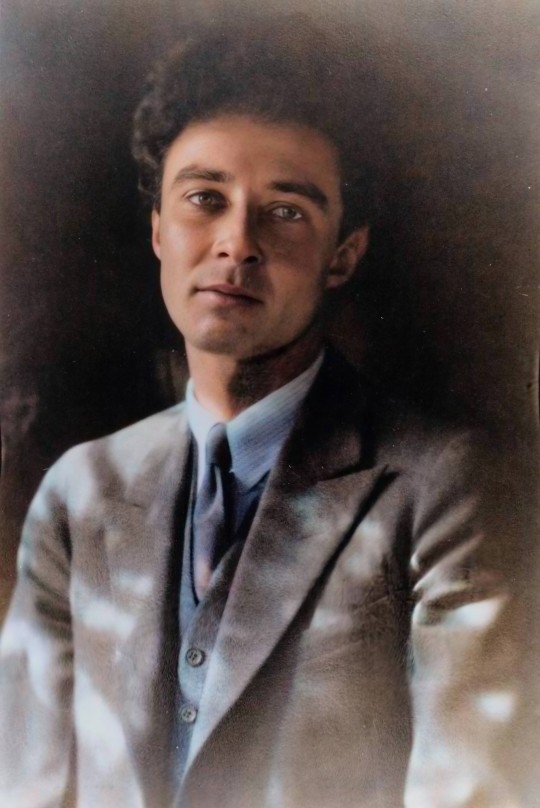


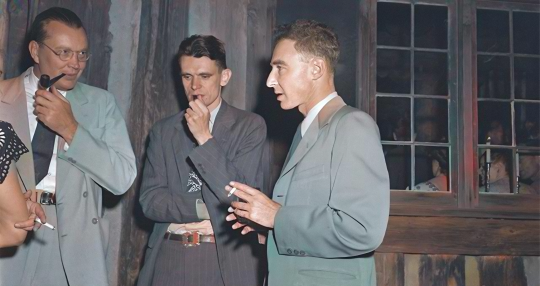
Colourized photos of Robert Oppenheimer
#j robert oppenheimer#robert oppenheimer#oppie#los alamos#oppenheimer#american prometheus#colourized
27 notes
·
View notes